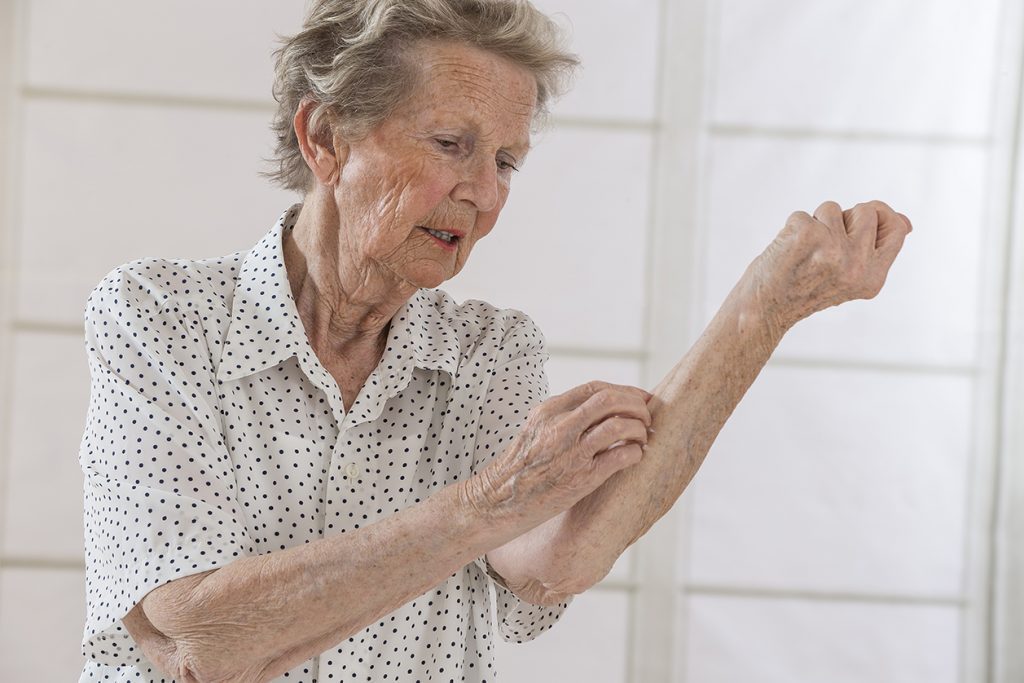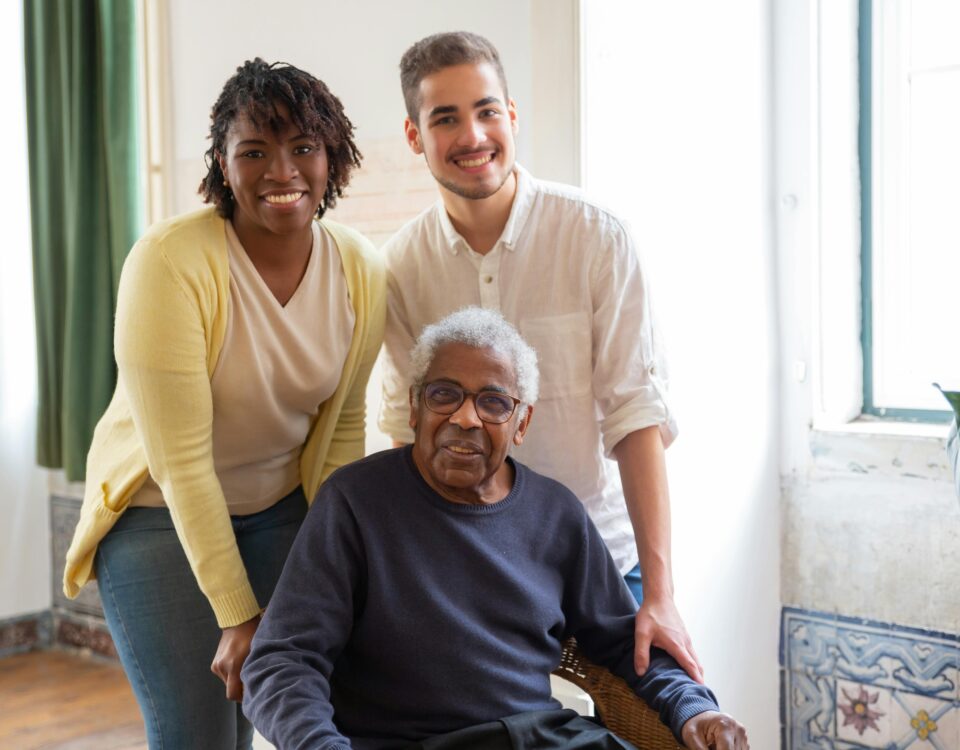You can’t always be there. But we can.
What is Psoriasis?

How the Internet is Helping Lonely and Isolated Elders
October 10, 2016
6 Ways Caregivers Can go From Stressed to Happy
October 17, 2016What is Psoriasis?
Feeling the need to scratch? Before you do, try to check the part of your skin that’s itchy. If your skin is patched with lesions and stacked with silver-colored scales on top, then you might want to see your doctor and have this checked.
 This may be a sign of Psoriasis. This disease usually occurs on your elbows, knees, and even the scalp. It could also appear on your palm. soles of your feet or your torso.
This may be a sign of Psoriasis. This disease usually occurs on your elbows, knees, and even the scalp. It could also appear on your palm. soles of your feet or your torso.
Here are other signs and possible symptoms:
– Skin that cracks and may bleed
– Plaques on scalp that look like dandruff
– Ridged, discolored and thickened nails
Psoriasis may come in different forms or a combination of it:
Plaque Psoriasis shows up on the elbows, scalp, and knees in the form of silvery scales on top of the inflamed skin.
Nail Psoriasis is linked to psoriatic arthritis. People who have this type of psoriasis experience painful nails that are discolored and thickened.
Psoriatic Arthritis affects any joint causing it to stiffen and possibly deform.
Guttate Psoriasis which usually affects children or young adults commonly appears on the thighs, upper arms, and scalp as pink-red spots.
Pustular Psoriasis is an uncommon form of psoriasis that develops from red skin turning into pus-filled blisters. It shows up in patches of skin and is possibly accompanied by fever and chills.
Erythrodermic Psoriasis covers the entire body in the form of a red burning rash. Although it is the least common, it is a very serious type of psoriasis that needs treatment right away as it may also trigger a faster heart rate along with changes in body temperature.
Inverse Psoriasis is commonly found in the corners of the body such as the skin folds around the genital area, armpits, and under the breasts. They appear as smooth red patches without scales. The condition gets worse with sweating and friction.
Psoriasis is unpredictable. The disease may be hereditary and could be a result of an overactive immune response causing the body to create skin cells faster than usual. It may linger for weeks or even months then could subside or even go into remission then come back. It is also not fully known as to what causes psoriasis but here is a list of what may trigger it.
Some possible triggers of Psoriasis:
– Stress
– Infections
– Sunburn (getting too much UV without sunscreen)
– Scratching too much
– Too much weight (obesity)
– Drinking Alcohol
– Smoking
– Hormone change (including Menopause)
There’s no cure for Psoriasis, but the good news is the disease can be manageable with early detection and with the right treatment.
Some of the known treatments for Psoriasis are:
– light therapy
– steroid creams
– oral medications, etc.
Again, if you feel that you encounter any of the symptoms of this disease we do suggest that you seek medical attention immediately.
source: webmd.com
Disclaimer: 1Heart Caregiver Services Blog may contain articles about health care and medical related topics. However, no warranty is made that any of the articles are accurate. There is absolutely no assurance that any statement contained or cited in any or our articles touching on health care or medical related matters is correct, true, up-to-date or, precise, If any of the statements we mentioned about healthcare or medicine is accurate, it may or may not apply to you or your symptoms.
The health care or medical information provided on 1Heart Caregiver Services is, at best, of a general nature and cannot replace the advise of a health care/medical professional. 1Heart Caregiver Services will not take responsibility for the results or consequences in attempting to use or adopt any information presented in its blog article

